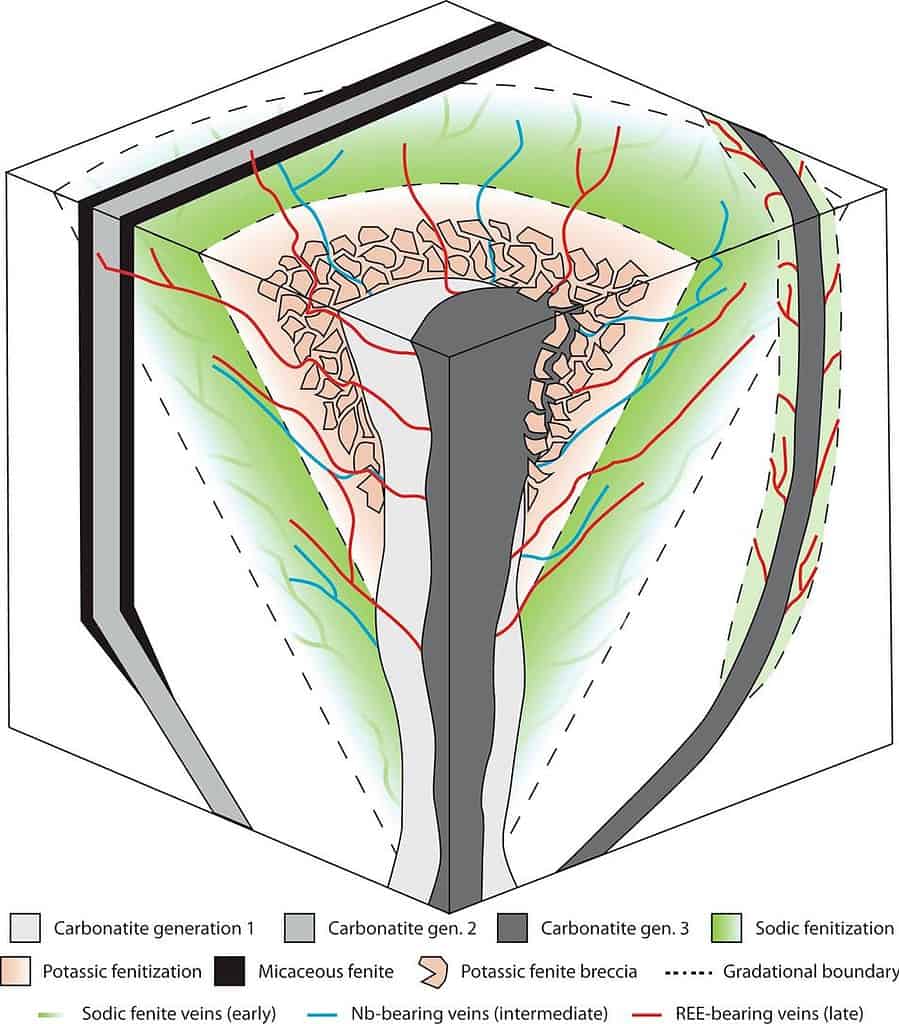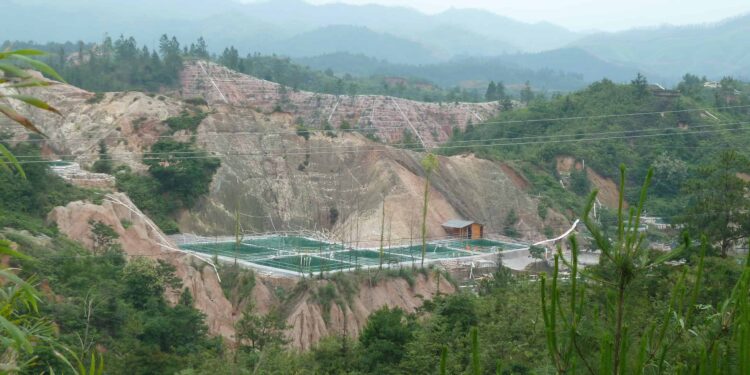Sourcing rare earth resources from the current distributors often unsustainable, expensive, and at risk of supply chain disturbance. Rare Earths Norway (REN), the company who owns most of the extraction rights, says it wants to do things differently.
“This is a very important moment for Rare Earths Norway, the resource estimate underscores the potential of the deposit to be a truly transformative asset that can underpin a secure rare earths value chain for Europe. We are working with leading partners, such as Montanuniversität Leoben in Austria to develop this deposit with the world’s most sustainable mine and mineral processing technology minimising the environmental footprint from mine to magnet, states Alf Reistad, CEO of Rare Earths Norway.” REN plans to dig down to -468 meters below sea level.
Digging into an ancient volcano
The Fen Carbonatite Complex is located approximately 108 kilometers (km) southwest of Oslo, next to the village of Ulefoss in Telemark County, Norway.
The area hosts some pretty unusual rocks, indicative of igneous activity hundreds of millions of years ago. The area lies on the west of the Oslo graben, a geological rift valley in southeastern Norway. This valley characterized by a series of faults and volcanic activity that occurred during the Permian period, some 60 million years ago. And still, the processes that formed and altered the rocks hosting the rare earths are even older, dating to over 500 million years ago.
Some 580 million years ago, the area was a part of the plumbing system for a volcano. The magma slowly cooled down, forming carbonatite rocks, some of which are chock-full of rare earth-containing minerals. Since then, the volcano and its surrounding have eroded, exposing the former pipe. The entire complex is around 2 km (1.2 miles) in diameter.
 Schematic of the geology in the area. Image credits: Elliott et al (2018).
Schematic of the geology in the area. Image credits: Elliott et al (2018).
More crucial resources
This deposit could reduce Europe’s dependence on imports, particularly from China, which currently dominates the market. This is crucial for the EU, which considers REEs the most critical raw materials due to their supply risk. Around 70% of the global extraction of rare earths and 90% of processing comes from China, according to research from the Oxford Institute for Energy Studies, an independent energy research institute.
This significant find suddenly makes Norway (and Europe) a big player in the global rare earth market.
“It is important to state that there is absolutely no extraction of rare earth elements in Europe today,” Rare Earths Norway CEO Alf Reistad told CNBC.
Beyond the economic implications, this is good news for the world as well.
Rare earths can be a bottleneck for many technologies, including the development of renewable energy and electric cars. By contributing to supply security, environmental sustainability, technological advancement, and economic development, this discovery supports global progress in numerous critical areas.
The focus on sustainable mining and processing methods can also drive technological advancements that benefit other mining operations around the world, promoting more environmentally friendly practices industry wide. Rare earth mining is often done in a not-so-environmentally-friendly way. So, we really need better ways to mine and process these resources.
Rare earths will likely remain a cornerstone of technological advancement. And now, Norway’s Fen Carbonatite Complex is poised to play a pivotal role in ensuring their sustainable and secure supply. This discovery not only promises economic and strategic benefits for Europe but also heralds a new era of environmentally conscious extraction practices, ultimately contributing to a more resilient and greener future.
Thanks for your feedback!
Source link : https://www.zmescience.com/science/geology/norway-rare-earths-deposit/
Author :
Publish date : 2024-06-13 12:54:21
Copyright for syndicated content belongs to the linked Source.


